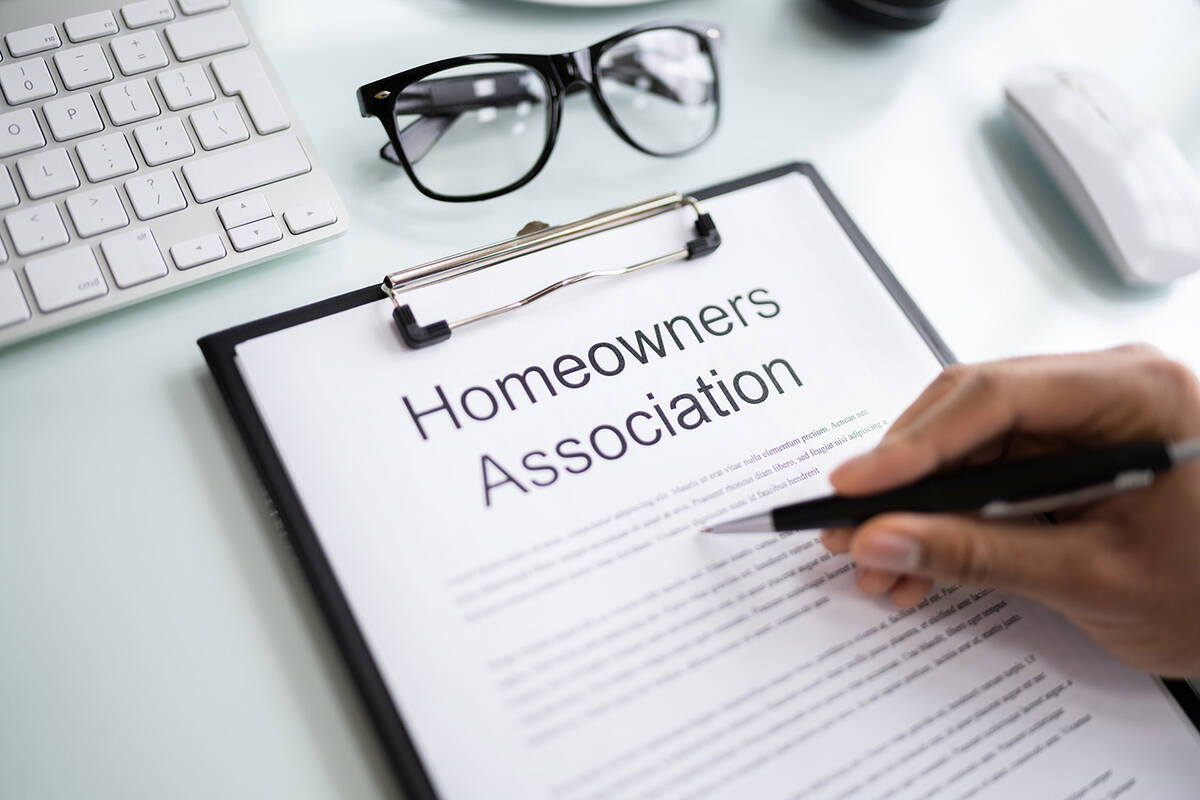HOA assessments keep increasing
Q: Our homeowners association increased the fee from $230 to $279 a month in August. They just put in all new landscaping and we have water pipes that break quite frequently. They now are raising it to $416 a month. Is there anything we can do to fight it? We are going to try.
A: You would need to review the governing documents of the association as to the percent increase the board can assess, with or without homeowner approval.
The second issue concerns the special assessment. Again, you need to review the governing documents as to special assessments, how they are calculated, the procedures to implement them, how they are approved, i.e. percent needed for approval.
Assuming the association has followed Nevada Revised Statutes 116 and their governing documents, the only option left would be for the homeowners to vote no. Your governing documents would tell you what percent is needed to reject the budget.
Q: I am trying to get some solid information before I move forward with any formal issues toward my HOA.
Can our HOA enforce laws and rules that are not enforceable by the city of Las Vegas, Clark County or the state of Nevada. For example, they have a sign stating, “15 mph” and want to impose a fine for going 25 mph when 25 mph is the lowest recognized speed limit in Nevada (school zone excluded).
NRS 116.31031 in Section C states (c) Send a written notice to cure an alleged violation, without the imposition of a fine, to the unit’s owner and, if different, the person responsible for curing the alleged violation
Is that not true or can they just send a letter (hearing offered) and impose a monetary fine for the first offense.
My final on this is about radar guns. Do the security personal need to be properly trained and the guns be a special recognized model and calibrated often as I have researched. My HOA says no.
A: As to your first question if they do not have written transportation authority, it is illegal to fine. You would have a good argument against being fined.
Under NRS (4), a notice to cure is a must, not a first offense monetary fine. You are required to be notified in writing for the first offense and given the opportunity to cure and you definitely must have a hearing before being fined.
Also, you are correct the lowest speed limit in a residential community is 25 mph with the exception of school zones. Street speed signs should have the approval of the Nevada Departments of Transportation or of the local municipality. You should contact one of these departments to determine whether the association had the authority to have a 15 mph sign on its street.
Under NRS 116.31031 (4), the board may not impose a fine not less than 30 days before the alleged violation, the unit owner and if different, the person whom the fine will be imposed had been provided with a written notice of the applicable provisions of the government documents that form the basis of the alleged violation and within reasonable time received written notice, specifying in detail the alleged violation, the proposed action to cure the violation, the amount of the fine and date and time of the hearing.
And finally, NRS 459.920 pertains to the prerequisites for the operation or display of radar guns or similar devices. The law states the following:
(1) A person or governmental entity shall not operate or display or cause to be operated or displayed a radar gun or similar device unless it is: (1a) or was at the time of purchase on the Conforming Product List of the International Association of Chiefs of Police and;
(1b) inspected at least every three years to determine whether its level of power and structural integrity comply with the minimum permanence specifications for that model established by the United States Department of Transportation.
Section 2 states that any person or governmental entity that causes to be operated or displayed a radar gun or similar device that emits nonionizing radiation shall adopt procedures for its use that protect the health and safety of the operator of the radar gun or device.
Section 3 states that a peace officer must successfully complete a course of training in the proper us of a radar gun or similar device approved by the Peace Officers’ Standards and Training Commission before the peace officer may be authorized to operate a radar gun or similar device.
There are many other sections in this law pertaining to radar guns, their maintenance and use.
The association should take a conservative approach before allowing the security company to utilize radar guns. The board or manager should contact their insurance company to determine if their policy has certain radar guns requirements. The association should require the security officers take the same course(s) as the peace officers and their certificates of successful completion should be sent to the community manager.
Other considerations: Who will own the radar gun(s)? Where will they be stored? Who will maintain them? These are all questions the board needs to have answered.
Barbara Holland, CPM, CMCA, is an author, educator and expert witness on real estate issues pertaining to management and brokerage. Questions may be sent to holland744o@gmail.com.



















